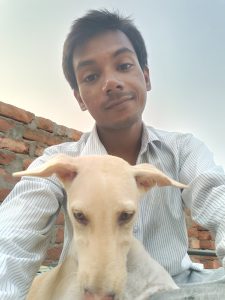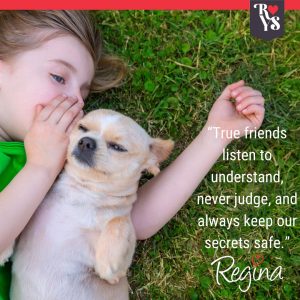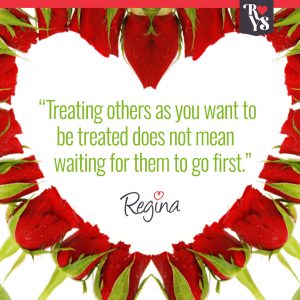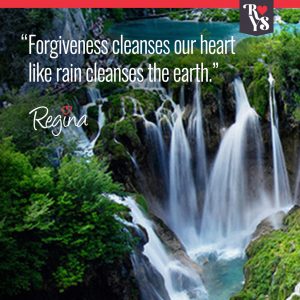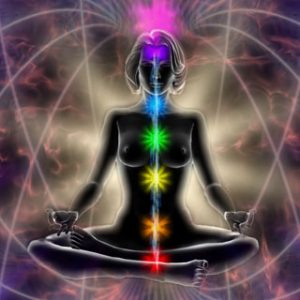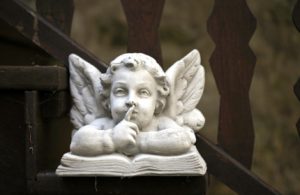
Which is a truth that is important to my mom, and to me.
My mom, Jean, is almost 98 years old. She is well-read, prides herself on keeping up with current events, and at her advanced age remains sharp as a tack. Mom lives in Little Rock, Arkansas, and I am in Los Angeles, California. We don’t get to see one another in person very often, but we speak daily by phone. Yesterday in our talk she seemed rather upset. I asked what was wrong, thinking she was sick or something was up with my Dad. But I was way off. “I didn’t know who Alex Jones is. Why in the world haven’t I heard about him before? He’s a horrible, hate-filled person.” She said.
I assured her the most likely explanation for her lack of awareness about the big man with a fat mouth is that she does not swim with the bottom-feeders that flock to his hate-filled and truth-absent radio program, The Alex Jones Show, or visit his conspiracy theory– and fake news–filled website, InfoWars.
Jones is an American conservative (whatever that means now?), alt-right, and far-right radio show host and prominent conspiracy theorist who provides a platform and support for white nationalists. The conspiracy theories Jones promoted alleged that the United States government either concealed information about or outright falsified the 2012 Sandy Hook Elementary School mass shooting, the 1995 Oklahoma City bombing, the September 11th attacks, and the 1969 moon landing.
The Boston Marathon bombing in 2013, according to Jones, was staged by the FBI.
The shooting of Arizona congresswoman Gabby Giffords in 2011 was a government mind- control operation.
The September 11th terrorist attacks were an inside job.
Alex Jones’s abuse of his right to free speech has almost single-handedly helped mainstream conspiracy theories become part of American life. And when it came to the Sandy Hook Elementary School massacre, Jones’s idea of “free speech” made the lives of the parents of the children killed a living hell. They received death threats from many of his cowardly, zombie-like followers, who, without thought or conscience, devoured and acted upon Jones’s hate-filled rants.
In an act of bravery, Scarlett Lewis and Neil Heslin, the parents of 6-year-old Jesse Lewis, who died in the elementary school massacre, sued Jones for the mental anguish his lies about Sandy Hook caused. Recently the jury ordered Jones to pay $49.3 million in damages to the couple. Finally, Jones’s lack of understanding or concern that hate speech is not free speech is catching up to him.
Good! There are many more like him who also need to face a similar come-to-Jesus moment.
Each day we are exposed to people like Jones whose dishonorable, hate-filled character is seen by some as a perverted notion of success. Pseudo-intellectual radio, Internet, and social media influencers and television hosts pander hatred, fear, and divisiveness. They advocate misogyny, racism, homophobia, authoritarianism, and anti-immigrant sentiment. They manufacture disinformation, false narratives, and infotainment propaganda that are not fact-based argument but emotionally powerful fiction. These experts of manipulation are listened to, idolized, and supported by millions of people who call themselves “Christians,” along with politicians, and paid advertisers who peddle their wares on platforms that promote evil as if it were “good.”
Public figures like Jones, who trash-talk, lie, and incite violence, are addicted to the artificial attention they get and to the appeal of having influence and power over others. These deceivers — vendors of disinformation, confusion, and imaginary facts — offer preposterous concepts to gain attention or vilify a perceived enemy, but nothing of value to an enlightened, responsible society. Nothing positive is added to our society when we reward people with fame, influence, or power for pandering hate, disinformation, and divisiveness.
Intimidation and vilification of those perceived to be opponents have become widespread. As citizens, we hold much responsibility for that. Without raising a unified voice to demonize these practices (bullying, sarcasm, character assassination, cruelty, lying, disinformation, etc.) within our sphere of influence, we have allowed negativity and denigration of others to seep into every part of life. The epidemic of disrespect throughout our social, political, entertainment, and even religious environments should be embarrassing to all of us who care that being responsible for our words and actions is a badge of honor and sign of true success as a human being.
To be the solution to this evil, we cannot wait for a jury to award millions to another victim of a Jones wannabe. We must do all we can to prevent others from falling victim to hate speech. Whether those we stand up for are poll workers, children, or ourselves, we must rise and fight back against this epidemic of dangerous irresponsibility!
We are not without power in our homes, our schools, our churches, and our communities. We must refuse to sit by, ignoring the real danger our silence has to perpetuate this damaging behavior.
We can be the solution and join together to shout, loud and proud, “Hate speech is not free speech!”
Although we may live in a free country and have a constitutional right to the freedom of speech, we must be responsible for the truth that we are not entitled to voice, text, print, or post to social media whatever we want without regard to the consequences of our actions. Actions without forethought and accountability are not free. There are always consequences, as our free will comes with a great amount of personal responsibility. It’s only by being accountable for our actions that we maintain our integrity as we navigate social systems that often encourage pushing boundaries to intolerable, ridiculous, and dangerous extremes.
We can create a safe, respectful atmosphere far from people like Jones by vilifying the ego-motivation behind all trash-talk. No matter the platform on which divisive speech is delivered, or by whom, we can turn this wickedness off. We can refuse to attend such rallies, social gatherings, coffee corner conversations, or church services. We can refuse to give our money to the businesses that pay for ad space on these platforms. We can vigilantly monitor our children’s use of social media. We can keep in mind that purveyors of hate and disinformation actively recruit young people through both subtle and overt racist, sexist, and anti-Semitic messages. And rather than shame a child who repeats hateful language or ideas they learn from peers, the Internet, or social media, we can take the time to help them decode the harmful messages behind the memes, words, and posts.
It’s time we put on our superhero capes and actively, on a daily basis, confront the abuses of free speech we witness, whether in ourselves, from our family and friends, or from other people. Together we can create a world where one benchmark for genuine success is accepting that the right to free speech comes with a huge amount of personal responsibility. Because when there are no supporters for people who lie, berate, slander, and tear others down, they will have no more influence in society and will cease to exist. And my mom, and all of us will rest easier.
Let’s get busy!




